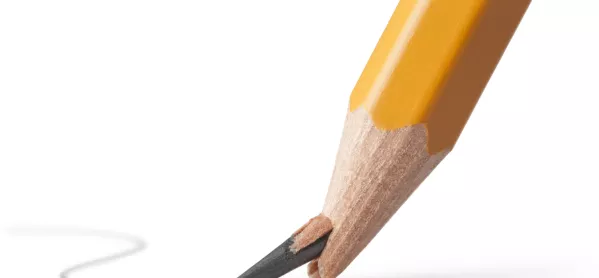- Home
- ‘Ofsted now does more harm than good’
‘Ofsted now does more harm than good’

A new school year and, as night follows day, fresh announcements from Ofsted.
First came the news that schools previously rated “outstanding” will lose their exemption from further inspection.
Responses were generally positive. There’s the obvious equity view: “What’s sauce for the goose is sauce for the gander.” Why should some schools, however good they were on a particular day, be treated differently from the rest? Meanwhile, Paul Whiteman, general secretary of the NAHT headteachers’ union, observed that newly appointed heads find their attempts to achieve change blocked by the argument that “we’re already outstanding”.
Ofsted: Conflict and misery
Next, the inspectorate dropped all reference to homework from its new school inspection framework, on the grounds that: “It is up to schools to decide whether or not they set it for their pupils… Inspectors will assess the wide range of work provided to pupils to ensure it supports and reinforces what is taught in the classroom and the wider curriculum.”
Here responses were more varied. From the parental lobby that finds homework a source of conflict and misery at home (one led by such influential figures as Kirstie Allsopp and Romesh Ranganathan), there was joy - though I’d guess that ditching homework entirely is not what Ofsted has in mind.
By contrast, from other, predictable, quarters emerged only fury. Chris McGovern, chair of the Campaign for Real Education (CARE) and a former Ofsted inspector to boot, told The Sunday Times: “This is a retrograde step… Many teachers will take the easy way out and not set homework from now on… This has been done to appease teachers who are complaining about their workload…”
Policy enforcers
To picture my perfect Ofsted inspector would be a bit like Lewis Carroll’s White Queen imagining five impossible things before breakfast. But I can’t imagine Mr McGovern having much in common with my ideal.
Nonetheless, I’m grateful for his intemperate tirade, which, while betraying a deep distrust of teachers, also illustrates clearly what too many people - including most of the media, policymakers and thinktankers - regard as the inspectorate’s purpose: to ensure that schools do what the government (along with the media, policymakers and thinktanks) wants them to do. Because, if left to themselves, they cannot be trusted to. In other words, to enforce policy.
CARE believes it. Well-intentioned social campaigners believe it. Every call for schools to address the latest pressing social issue - knife crime, obesity, fitness, sleep, healthy eating, screen time, internet safety, tolerance, intolerance, diversity, extremism - brings a concomitant demand that Ofsted check that schools are doing it. Otherwise, it’s argued, they won’t. Trust has long been in short supply.
To be fair to Ofsted’s boss, Amanda Spielman, she and her senior staff are as powerless against those demands as the schools they inspect, though they suffer less than those on the receiving end. Whenever an element is added to the inspection framework, schools feeling themselves under the cosh (a lot of them) write policies to address it, despite Ms Spielman’s pleas not to. And, if an element is removed or downgraded…well, witness those reactions to that decision not to mention homework.
Catastrophic damage
So what of this week’s suggestion that Ofsted inspect schools’ financial management? Perhaps Ms Spielman’s next annual report could tell the government how schools are doing the impossible with inadequate budgets?
But she can only do so when the damage is so catastrophic as to be clearly demonstrable. Last year, she was (genuinely) unable to demonstrate scientifically to the Commons Education Select Committee that swingeing cuts were affecting levels of achievement, though she said it was likely. Effects become measurable only slowly, so in the meantime government can ignore them. And did, in this case.
As for the latest proposal that Ofsted should report on schools’ transmission of “cultural capital”, I guess we’ll rapidly see a nation’s entire artistic, literary, spiritual and social heritage reduced to policies two sides of A4 in length.
Ofsted holds schools accountable. Schools, in their turn, are able to hold neither inspectorate nor government to account for failing to support them adequately. Simultaneously a blunt instrument and a double-edged sword, Ofsted now does more harm than good.
We must find a better way of assuring schools’ accountability - and inspection needs to go.
Dr Bernard Trafford is a writer, educationalist, musician and former independent school headteacher. He tweets @bernardtrafford
Keep reading for just £1 per month
You've reached your limit of free articles this month. Subscribe for £1 per month for three months and get:
- Unlimited access to all Tes magazine content
- Exclusive subscriber-only stories
- Award-winning email newsletters



